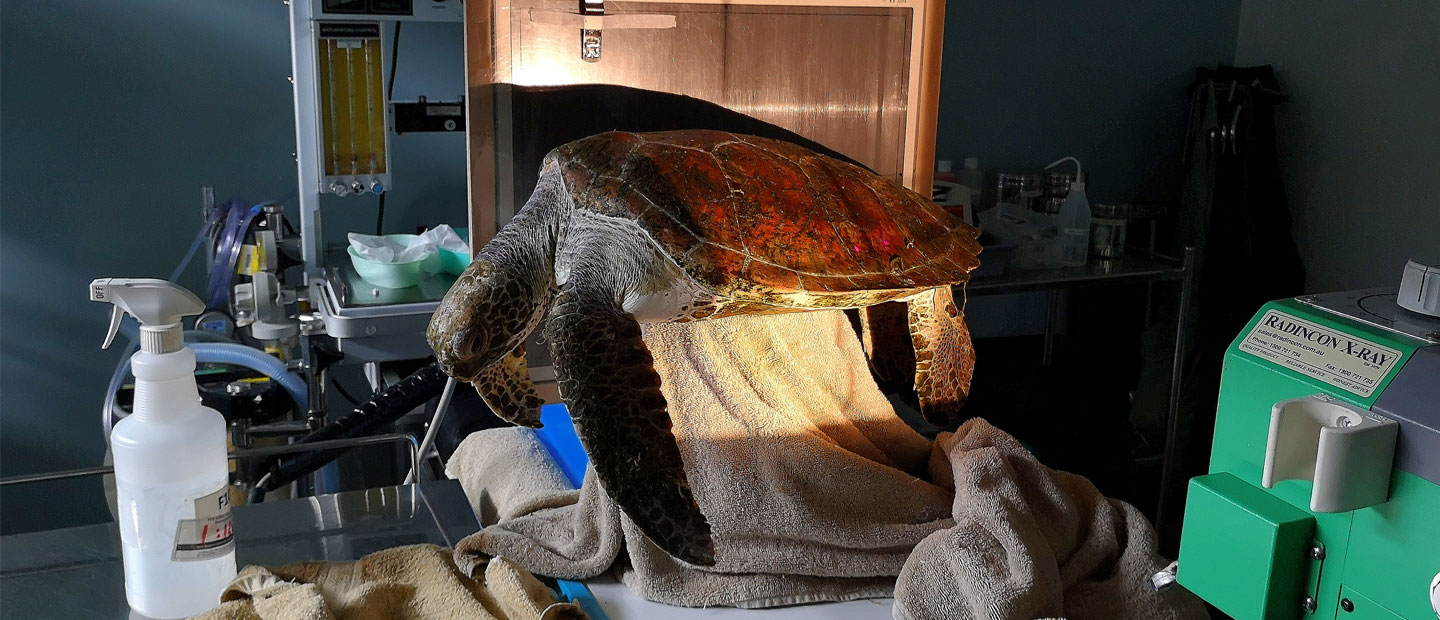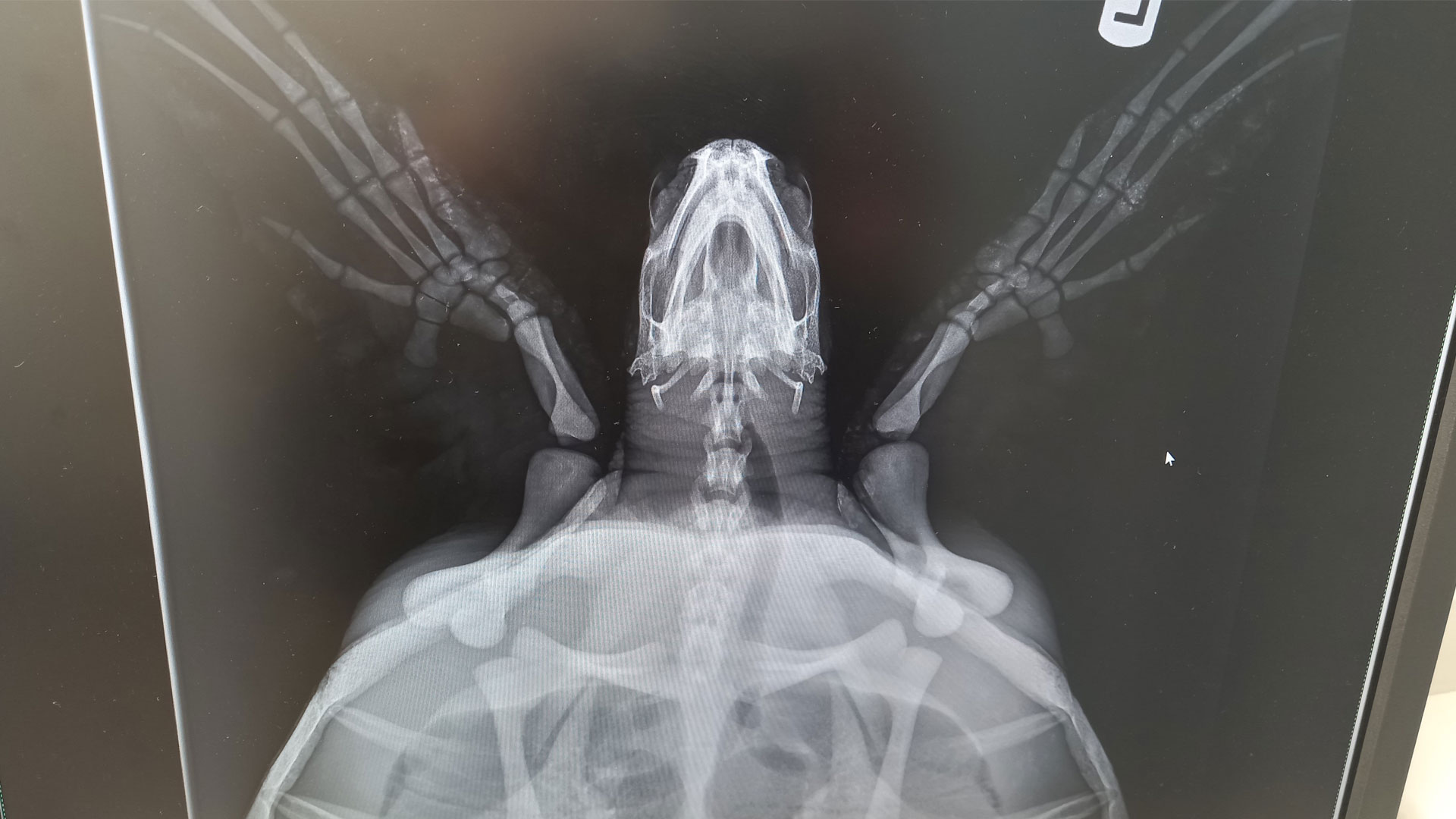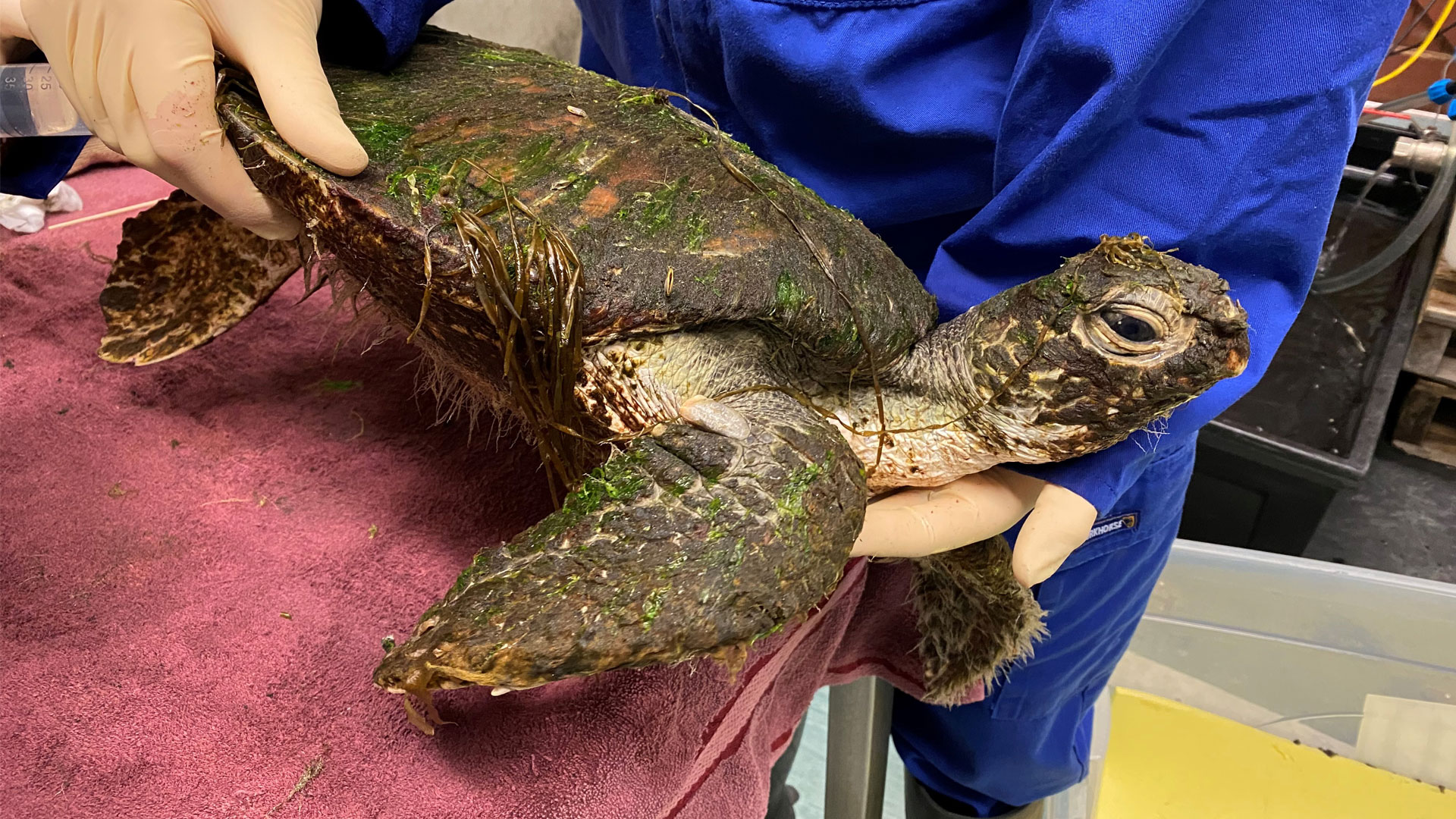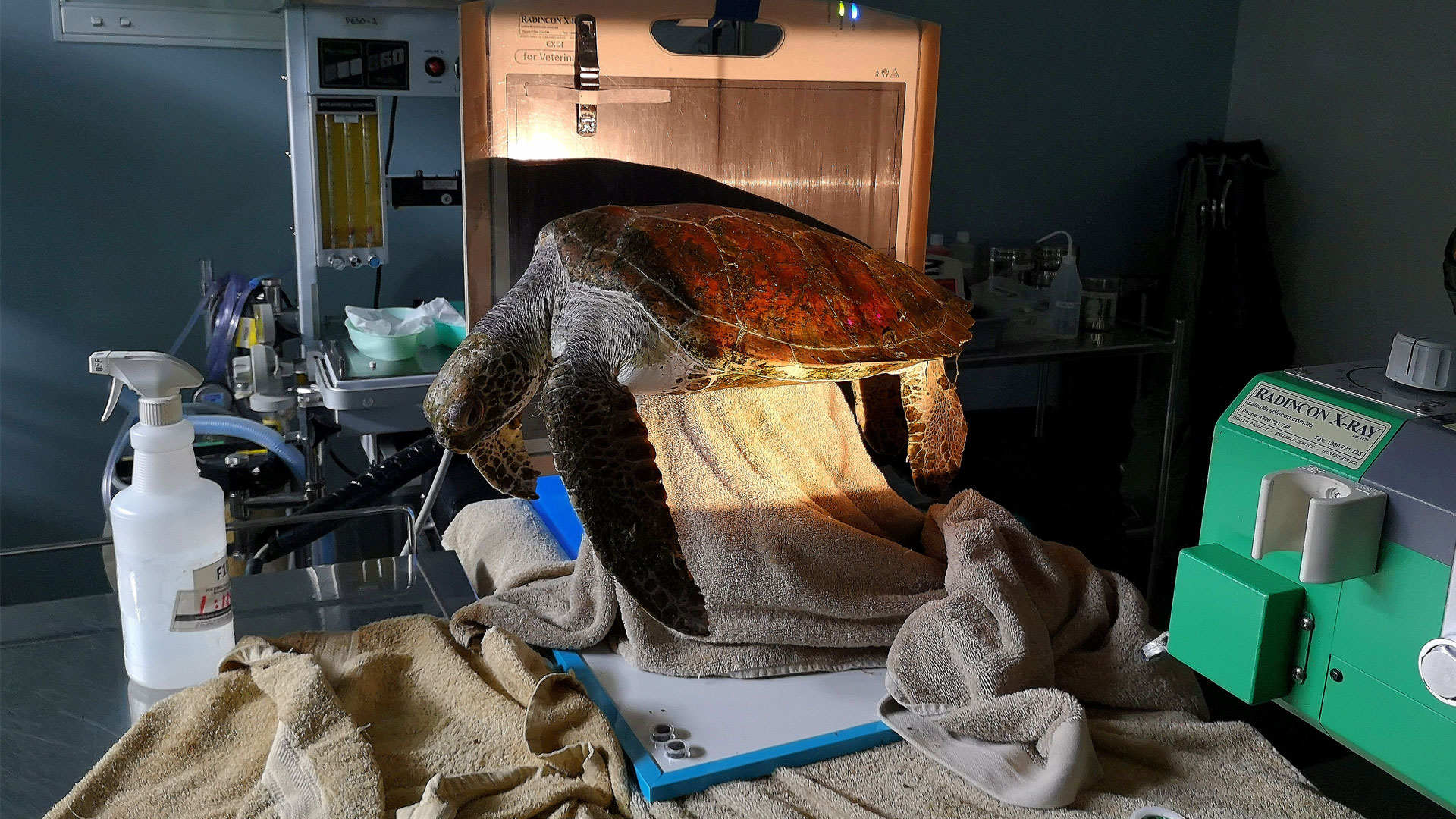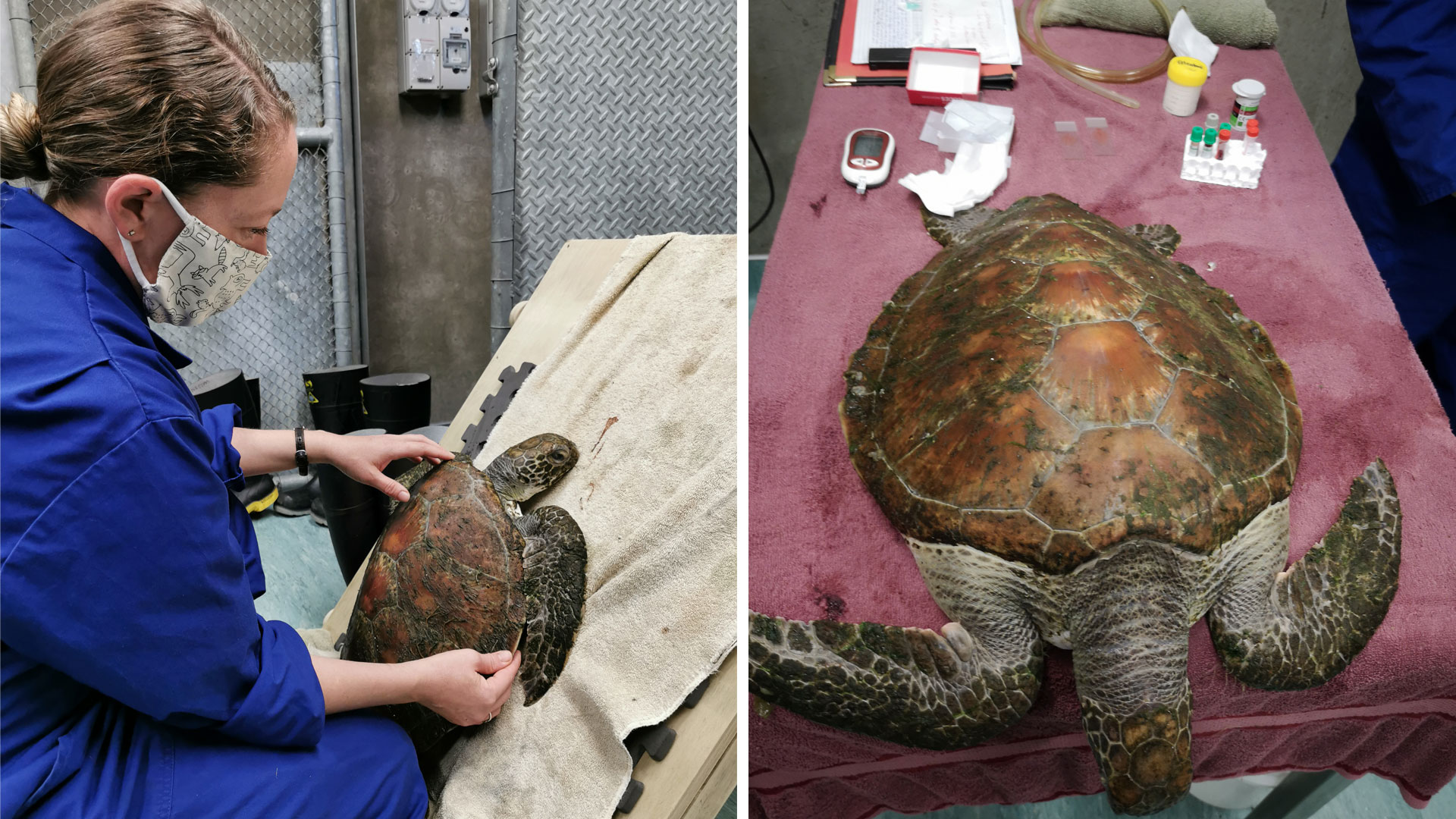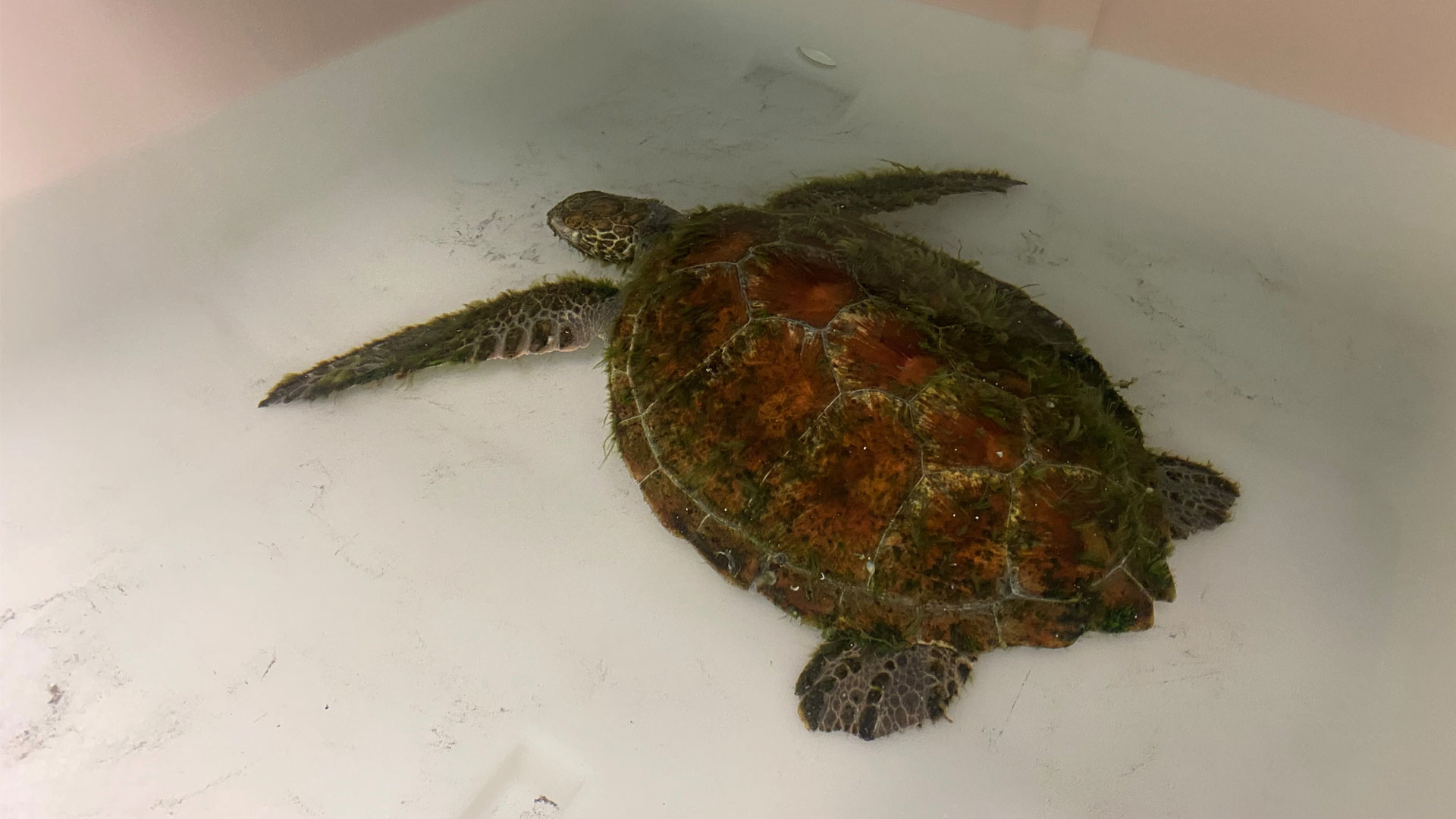Placing Delta in a tank with dripping water to get her slowly warmed up to 25 degrees to enable her body to start metabolising again, giving her fluids and pain relief, and taking X-rays and bloods were the team’s first priorities. Following this, they also began tube-feeding her an easy-to-digest liquidised food.
“Delta’s blood test results revealed elevated white blood cell levels, which indicates systemic inflammation, and her X-rays showed abnormal grey mottled patterning on her lungs,” says vet nurse Celine.
“We’ve seen pulmonary disease in these turtles before, and we think it likely that Delta has pneumonia. It is treatable with antibiotic and anti-fungal medications, but it does take quite a few months to successfully treat.”
“She’s a really lovely and calm turtle, and having got her stabilised, on Wednesday (22 September) it was great to be able to have our conservation colleagues at SEA LIFE Kelly Tarlton’s come and collect her for ongoing rehabilitation,” explains Celine.
Fortunately, Delta soon showed she was strong enough to be moved to a swimming tank.
“It was so heartening to see her able to swim down and rest on the bottom of our larger tank for good periods of time, as it showed us she had enough lung capacity.


